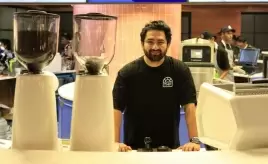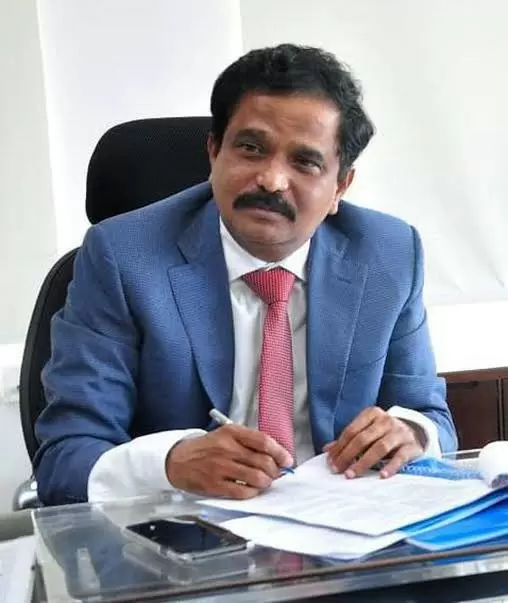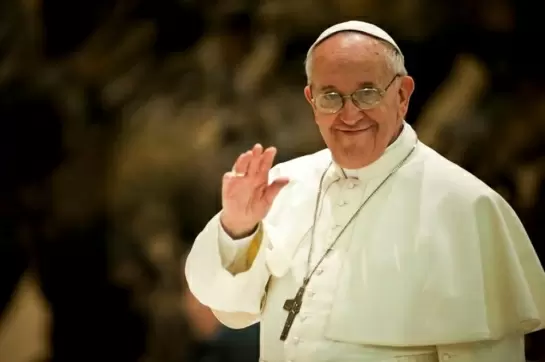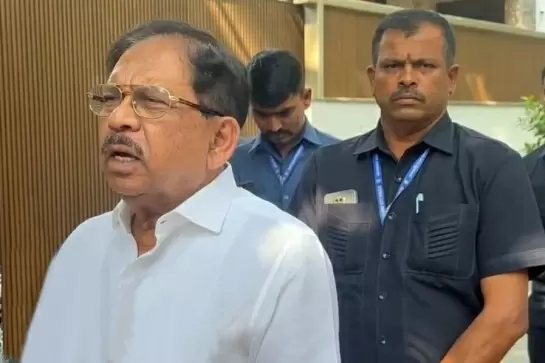Documentary released to commemorate Mullivaikkal massacre

18-May-2012
Vol 3 | Issue 19
As the global Tamil population observes the third anniversary of the Mullivaikkal massacre, a documentary has been released on the suppression of media freedom in Sri Lanka.
The documentary, ‘Taraki’, has been produced by S Someetharan, a Sri Lankan Tamil journalist, currently in exile in India. Taraki is the popular name of a well-known Tamil journalist Dharmeratnam Sivaraman, who was murdered in 2005 in Colombo.
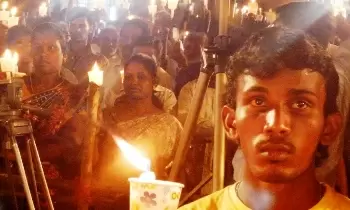 |
|
Candles were lit in memory of the thousands who were killed in Mullivaikkal at a meeting held by the Sri Lankan Tamils Protection Movement in Chennai
|
Eight years later, Taraki’s murderers are yet to be apprehended, and the suspicion of the hand of the Sri Lankan government in his killing still persists among the journalistic fraternity in Colombo.
“Maybe it is a foolish thing…but if everyone leaves…and that is precisely what they (the government) want…then there would be no one to see, no one would write the truth.”
These were the words of Taraki, who was respected for his vast knowledge of the politics and the ethnic conflict in the country.
Taraki was kidnapped in April 2005 in Colombo’s infamous streets, known for high abduction and murder of political and intellectual figures - the last high profile target being ‘The Sunday Leader’ editor, Lasantha Wickremathunge, who was killed in January 2009.
Taraki was walking to a bus station along with a Sinhala journalist with whom he had his last drink, when he was abducted in a ‘white van’ before the very eyes of the other.
His body was recovered after a week on 28 April, gagged, tied up and dumped behind the Sri Lankan Parliament’s high security zone. He was 46 years then. His family of wife, two daughters and a son fled Sri Lanka soon after.
“In Colombo’s streets, we always had a constant eye on street corners, the bushes, the open drains and any obstacle to see if there is the possibility of a sudden ambush by gun men,” says Someetharan, a bi-lingual journalist who worked with Tamil and English publications in Jaffna and in Colombo and finally fled from that country after the end of war in May 2009.
Someetharan produced the documentary to commemorate the seventh death anniversary of Taraki, who was known to him personally and whose interviews he had recorded in 2004 in an attempt to document the political situation in his country.
In the documentary, Taraki admits to facing threats and indicates that the murder of another Tamil journalist, Aiyathurai Nadesan, in May 2004 indicates a “beginning” in annihilations, which he foresaw as moving towards what the Tamil population in Sri Lanka had always dreaded – their political and cultural elimination.
Taraki was unique in many ways. He had been with a militant group, PLOTE, at a senior level and later left it and took to writing. He started writing under the pen name ‘Taraki’ for Sri Lanka’s “The Island” newspaper.
His analysis instantly caught on with Sinhala intellectuals in the South, while at the same time his political and military analysis became popular among Tamil groups including the dominant and militant LTTE. He also led the editorial team of Tamil Net which was respected for its most authentic reportage of Lankan Tamil affairs in Sri Lanka.
Not surprisingly, the culprits behind his murder remain scot free till date. “We were instantly tipped off on his abduction. His phone was ringing for a week. We always knew nothing would come out of the investigation,” says young Someetharan.
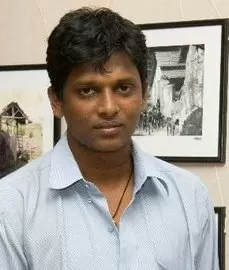 |
|
In exile: Someetharan
|
“What I have produced is just from 30 percent of the tapes. 70 percent of the tapes were left in Sri Lanka while I fled, including recordings of Lasantha,” says Someetharan.
Lasantha, the editor of “The Sunday Leader” who was killed in 2009 wrote in his last editorial that if he were to be killed it would be his government that would have to take the blame.
“Taraki’s loss for the Tamil population is immeasurable. We knew what his end meant when the war actually ended,” says Someetharan.





